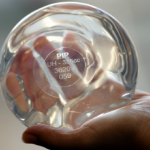I always tell importers not to trust Chinese manufacturers’ certificates. I am trying not to cast doubt on ALL Chinese suppliers, because some of them are honest. On the other hand, it is better to push inexperienced importers to be on the cautious side, and to adopt sound QA systems rather than following their “I trust this guy” feelings.
 To offer a somewhat balanced view, I feel obliged to write about a huge scandal that was recently uncovered in France. It is actually quite similar to some Chinese scandals (melanin in powder milk and in dog food, anti-freeze in toothpaste…).
To offer a somewhat balanced view, I feel obliged to write about a huge scandal that was recently uncovered in France. It is actually quite similar to some Chinese scandals (melanin in powder milk and in dog food, anti-freeze in toothpaste…).
A fraudulent company, called PIP, sold breast implants that might release undesirable (but, it seems, not carcinogenic) substances. According to CNN, “300,000 women in 65 countries around the world are thought to have had them fitted, both for cosmetic reasons and in reconstructive surgery following treatment for breast cancer.”. Ouch!
According to the Guardian, PIP did circumvent the tests conducted by the laboratory they chose for their CE certification:
The trouble began after PIP had obtained its CE mark. TÜV Rheinland, which has a good reputation in Germany, did send in inspectors on occasion. But PIP knew they were coming. A defiant Jean Claude Mas, the owner of the company, admits he was buying cheap industrial-grade silicone to fill the implants, costing €5 a litre, instead of medical-grade which cost €35.
“TÜV would announce its visits 10 days beforehand,” he told French journalists. “That was the routine. I would give the order to hide all the documents regarding the non-authorised PIP gel and as far as the containers were concerned, the staff would organise themselves to make them disappear.”
Another similarity: the regulation is not adapted (remember, Chinese suppliers do not run any risk if they ship unsafe products abroad):
Manufacturers of breast implants and hip joints must get CE mark rather than licence based on evidence from clinical trials.
Oh, and one last similarity: salespeople tended to offer “visits to the spa” to influencers/purchasers (how about KTV?):
The European-wide trade body, Eucomed, set out an ethical code in 2008, requiring members not to meet doctors unless for work and not to offer rounds of golf or visits to the spa.
———
Related article: 5 tips for testing China products against regulatory standards
